Ten Faculty Projects Awarded Digital Humanities Grants
Twelve faculty members working on 10 projects are recipients of this year’s Digital Humanities Curricular Development Awards, in an effort to support humanistic inquiry about and with computational techniques and digital mediums.
In this second year of the program, the selection committee "was incredibly impressed and excited by the creativity of the work we saw," says Associate Professor of Literature Rachel Buurma.
"Grant recipients from all three divisions (in the departments and sections of political science, Spanish, educational studies, linguistics, sociology & anthropology, Chinese, religion, and English literature) are experimenting with computational techniques and digital tools to do varied forms of humanistic work," she adds, "teaching students about virtual reality's role in humanitarian work, for example, creating assignments on both quantitative and qualitative content analysis of social media, and assigning projects that will create new digital archives of currently inaccessible texts."
The 2017 Digital Humanities Curricular Development Awardees are:
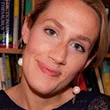
Course: The Politics and Practice of Humanitarianism
Instructor: Assistant Professor of Political Science Emily Paddon Rhoads
In this course, students will critically engage with the fields of digital humanitarianism and virtual reality through a series of in-class immersive experiences, reading, written reflection, and class discussion. Students will consider the implications of virtual reality in written reflection pieces that will be shared online. Additionally, students will contribute content for the development of a digital database of virtual reality resources. They will source new virtual reality documentary films, write reviews, and conduct research on the institutional uses for this technology.

: Introduction to Spanish Literature/Introducción a la literatura española
Instructor: Visiting Assistant Professor of Spanish Eli Cohen
Students in this course will engage with and develop modes of thinking about and presenting the history of Spanish literature through practices associated with ‘distant reading,’ the development of a digital exhibition consisting of a visual and textual chronology of Spanish literature from its origins through the 21st century, and the construction of a non-linear digital exploration and presentation of the texts covered in class designed to uncover and highlight synchronic, intersectional, parallel, and recursive phenomena that often remain undisclosed by a traditional reading of literary history. This project will entail the development of a website that will allow students to present their research in an interactive and media-rich digital space.
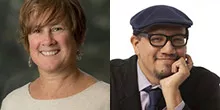
: Introduction to Education
Instructors: Visiting Assistant Professor of Educational Studies Jennifer Bradley and Assistant Professor of Educational Studies Edwin Mayorga
This course will explore the concept of “multiple literacies,” where students and faculty can engage in a collaborative process of gathering digital ‘texts’ from art, music, literature, journalism, and other electronic sources. It will curate a variety of digital sources through Google Docs and asynchronously communicate about these texts through the comment and suggestion functions. Throughout this process, faculty and students will engage in dialogue, review suggested texts, and make connections to course readings and current education issues. The digital syllabus will become a living document that will evolve, with additional sources added each semester.
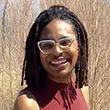
: Sociolinguistics II: Deviance, Dystopia, and Democracy
Instructor: Assistant Professor of Linguistics Jamie Thomas
In this course, digital humanities will serve as a tool for guiding advanced linguistics students into critical approaches for the examination of news and entertainment media, as well as science fiction. Discussion will concern questions about the role of discourse (textual, audiovisual) and computer languages in the presentation of information and the engagement of internet audiences. Course assignments will introduce students to using plain-text authoring and version control as they learn to write original, collaborative work to contribute to the ongoing, born-digital and public-facing exhibit [ZOMBIES REIMAGINED].
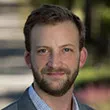
: Research Methods in Social Science
Instructor: Assistant Professor of Sociology & Anthropology Daniel Laurison '00
Engaging in digital content analysis within this course, students will learn how to grab a sample of digital content from online platforms such as Twitter or Reddit and use qualitative content analysis, word clouds, and other techniques to look for and understand patterns of meaning in the data they retrieve.

: Third Year Chinese Conversation
Instructor: Lecturer of Chinese Min Wang
In this course, students will engage with online discussion forums and make digital presentations through the development of Wordpress-based blogs, video essays, and final digital storytelling projects. At the end of the semester, students will also combine some of their blogs into an approximately 1,500-character essay to be submitted for publication, with instructor revisions, in an official journal for students’ essays in the U.S., JUHE SUPPLEMENT《居荷副刊》.
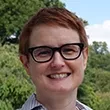
: Say What? Syntactic Variation in Dialects of English
Instructor: Visiting Assistant Professor of Linguistics Patricia Irwin
In this course, students will analyze data from corpora – large bodies of transcribed and searchable text – and explore the ways in which language can be viewed as a socio-cultural phenomenon and as an abstract set of rules in the minds of speakers. Students will learn to query and interpret results from the 500+-million-word Corpus of Contemporary American English in order to analyze the syntactic variation that exists (often unnoticed) in mainstream varieties of English. They will then apply these skills to a newly compiled corpus of Appalachian English, the Audio-Aligned and Parsed Corpus of Appalachian English.
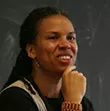
: Reading Religion and Comics
Instructor: Professor of Religion Yvonne Chireau
In this course, students will consider the idea of the “magical book” as visual and historical object, and especially their uses as religious artifacts and ritual items. Studying the intersections between these categories by examining primary sources, the class will build an electronic image and text archive that foregrounds the material and cultural production of books related to a variety of magic, occult, and esoteric traditions in the United States. In so doing, students will learn the basics of data compilation and annotation, scanning and processing a co-created digital archive that uses the Omeka platform to organize and manage our materials.

e: First Year Seminar: Introduction to Latinx Literature and Culture
Instructor: Assistant Professor of Spanish Désirée Díaz
In this seminar, students will participate in a semester-long research workshop in which they will explore and analyze contemporary representations of Latinx culture in digital media, with an emphasis on digital content produced by Latinx groups and communities such as news outlets, blogs, magazines, video channels, and social media platforms, among others. Students will produce original and innovative research in the field of Latinx culture with an array of non-traditional methods and delivery formats. Primarily, students will use the publishing platform Scalar to produce and publish their digital research projects.
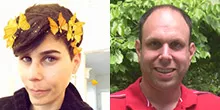
: The Rise of the Novel and Introduction to Computer Science
Instructors: Associate Professor of Literature Rachel Buurma and Professor and Chair of Computer Science Richard Wicentowski
This project brings together work in CS21 with work in ENGL35. It will exist in two interlinked versions, one for students in CS21 and one for students in ENGL35. For CS21 students, the assignment is a word-sorting lab. Students will learn to write a program that will create raw word frequency lists for a group of novels by Jane Austen and her contemporaries, draw on these sorted lists to calculate the relative frequency of each word in teach text, and then allow users to compare two texts or corpora with one another and give an output of a list of words that are “overrepresented in” or “more distinctive” of each text or corpus in comparison with the other. Using background information on these novels provided in the assignment, CS21 students will then try to interpret any patterns they can find. Students in ENGL35 will then complete an assignment in which they will use the CS21 students’ program to compare various configurations of Austen’s novels with various configurations of other novels written around the same time; contextualizing the results with what they have learned during the course of the semester, the ENGL35 students will work up some initial interpretations. The students will then meet in groups to answer each others’ questions about the program and the interpretation of the results.
Swarthmore is investing in its vibrant intellectual culture. Learn how at lifechanging.swarthmore.edu.



